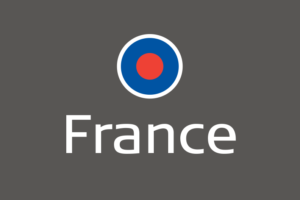France: Healthcare: Compliance: Negotiations on “zero co-pay” moving forward, albeit slowly
 Many thanks to our French Partner Gerep for providing this article.
Many thanks to our French Partner Gerep for providing this article.
Since the end of 2017, health professionals, device manufacturers, complementary healthcare insurers, and the government have been engaged in consultations to implement one of the campaign promises made by the President of the Republic– to achieve 100% coverage for glasses, as well as hearing aids and dentures. All players in the different sectors have been meeting for negotiations that can only be bitter and complex because, if patients are to get the gift of zero co-pay then financing this will require everyone to make an effort. In this zero-sum game, the winners could be the losers and vice versa.
The principle is based on a “zero co-pay” basket of coverage
Even if some people look strangely surprised, the promise of 100% coverage for optical expenses, hearing aids and dentures will not cover all treatment received by patients. If this were the case it would cost over three billion euros and would clearly have inflationary effects. The negotiators are moving towards designing a basket of coverage for which patients would have nothing to pay. Such a scheme means drawing up a list of basic benefits that meet what are considered to be fundamental needs. Obviously, if glasses, hearing aids and dentures are to be refunded 100% by a combination of first and second tier healthcare insurances, premium rates will be regulated. Negotiations are thus centred around the issue of agreeing on what parameters to establish. To what extent will coverage and rating remain uncontrolled? What level will rates be set at? What counterparties will there be?
Glasses and hearing aids are still sticking points
The negotiations on dentures are nearing completion. The price caps for dentures has been accepted by dentists in exchange for a revaluation of dental restoration techniques. Currently, the government and representatives of the profession are discussing what treatments will be contained in the “zero co-pay” basket of coverage and which will be subject to free or controlled pricing. More than half of all dentures may well be obtainable by patients with no co-pay. This is a real breakthrough.
Negotiations are making no progress in the areas of optical and hearing aids. This is understandable because price controls would undermine the business model of these two industries. For example, hearing aid specialists do not want to distinguish between providing devices and on-going patient monitoring. Currently, the cost of maintaining and adjusting devices throughout their useful life is built in to the sales price of the device. This would all change. The same discontent can be found among opticians who feel aggrieved because price controls would reduce their margins. What’s more, certain counterparties put forward the idea of refunding glasses every three years instead of two. This would create a real risk of cutting back on opticians’ business. At this stage of the negotiations, the two positions seem irreconcilable. The system of practitioner networks however, has indeed shown that it is possible to guarantee 100% optical coverage for a large majority of needs.
The numbers are straightforward for second tier insurers
Complementary healthcare insurers were singled out for criticism during the presidential campaign. Now that the preposterous idea of a hidden pot of money that could finance better coverage for patients has been swept aside, these insurers are back to their role as guarantors of a balanced healthcare system. If coverage is increased then premiums will go up. This would be tantamount to making insureds pay for the cost of “zero co-pay” while they are the patients. Even so, the health minister (Minister for Solidarity and Health) has assured the public contributions will not change. Complementary healthcare insurers are waiting for the end of the negotiations before doing their sums. It is quite obvious that if some coverage is increased, and contributions do not change, then other coverage will be cut back. The first-tier healthcare system is currently running a deficit of four billion euros and could not finance “zero co-pay” any other way.
Will the customer be the real winner?
At the end of the negotiations, the “zero co-pay” basket of coverage could turn out to be a real breakthrough in meeting patients’ needs. According to the first-tier healthcare scheme, almost 40% of people who would require dentures do not seek treatment mainly because of the cost. We can only applaud the government’s decision to bring together all sectors to imagine solutions based on how the practitioner networks function. Care should be taken, nevertheless, not to create regulatory paraphernalia. Multiplying constraints, cutting back freedom of choice, making treatment classifications and premium rating more complicated would, in the end, make it more difficult for insureds to understand coverage and make claims. Any reform that does not lead to greater clarity for insureds would be a reform doomed to failure.
